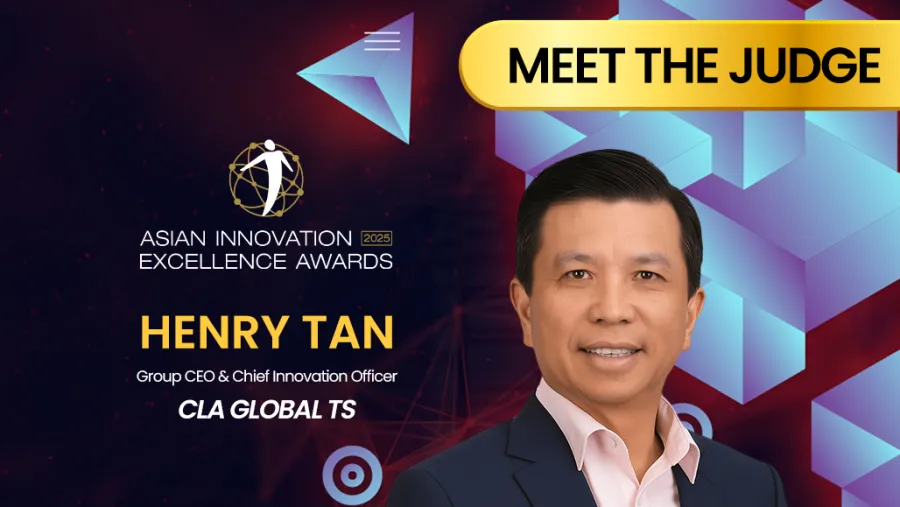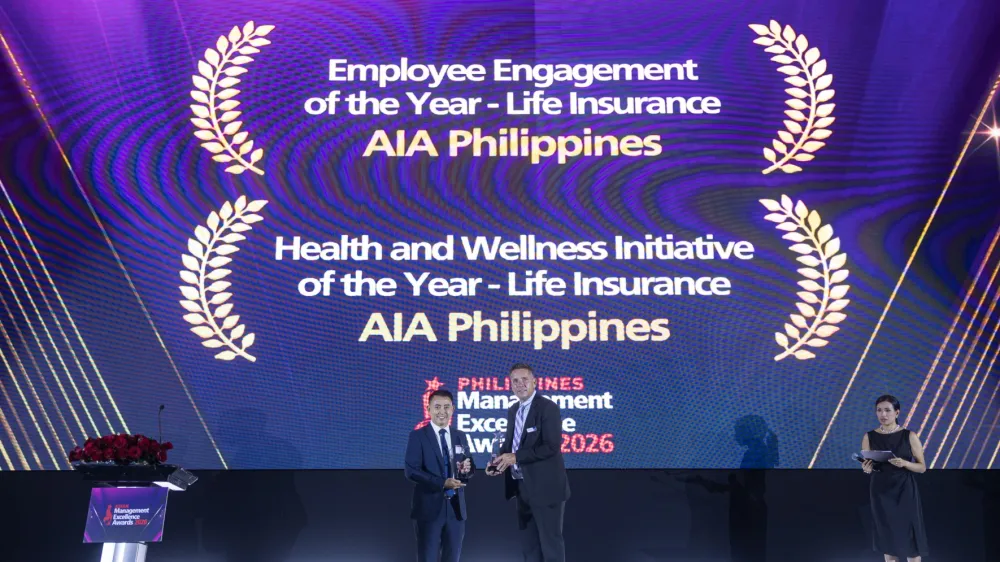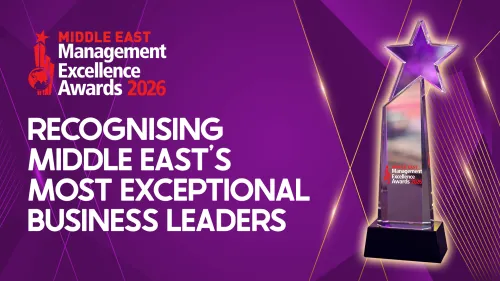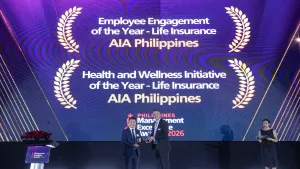
CLA Global TS’s Henry Tan underscores innovation as a key driver of meaningful change
He emphasised that innovation must be at the heart of every strategy to meet growing demands and serve clients effectively.
In today’s fast-changing global economy, innovation has become essential for companies to stay competitive, relevant, and future-ready. It drives progress, shapes strategy, and enables meaningful change across industries.
Henry Tan, Group CEO and Chief Innovation Officer of CLA Global TS, shared key insights. He leads the firm’s growth and development into a prominent player in the regional market. With extensive experience advising clients across Singapore and Asia, he has guided numerous businesses through IPOs, M&A, accounting, and other advisory services.
Since 1993, Tan has been dedicated to helping companies and entrepreneurs to expand and succeed across Asia. He has many years of experience in the China market and also serves on the boards of several listed companies.
As a judge at the Asian Innovation Excellence Awards 2025, he explored how innovation empowers businesses to scale, adapt across Asia’s diverse markets, and create lasting impact through visionary leadership, sustainability, and effective execution.
As Group CEO & Chief Innovation Officer of CLA Global TS, how do you personally define innovation in today’s fast-changing business environment?
Innovation is the key driver of meaningful change in today’s business landscape.
In a fast-evolving environment, it is essential for organisations to embrace innovation to remain competitive, relevant, and efficient—and to stand out. To meet the growing demand for effective solutions and deliver exceptional service to our clients, innovation must be at the heart of our strategy.
As CLA Global TS’s Chief Innovation Officer, I actively champion innovation across our firm—for our People, our Clients, and our Communities. For our People, we continually seek innovative solutions and digital tools to enhance operational efficiency, which in turn enables us to serve our Clients more effectively. For our Communities, we drive initiatives focused on nurturing future talent for the business and accounting industry. Personally, I believe innovation is the one constant in an ever-changing business world, and it will continue to shape how we grow and succeed.
Many of your clients have gone from start-ups to IPOs. What role does innovation play in preparing a company to make that leap?
Innovation drives transformation and growth.
For our clients transitioning from start-ups or SMEs to listed companies, a strong willingness to explore beyond conventional boundaries and embrace innovation is what sets them apart. At CLA Global TS, we stand alongside our clients as strategic growth partners. As they expand and move towards listing, we provide guidance to help them make informed decisions—ensuring that financial reporting, risk assessments, and due diligence are thoroughly addressed to support success and minimise risk. We offer assurance that their innovative efforts remain compliant with regulatory requirements, whilst still allowing them to differentiate and maintain risk at its lowest.
Asia is home to diverse markets and regulatory environments. How does this complexity create opportunities for innovation?
Asia’s complexity is a powerful catalyst for innovation.
The region’s rich diversity—across cultures, economies, and regulatory frameworks— presents both challenges and fertile ground for breakthrough ideas. Rather than viewing this complexity as a barrier, forward-looking organisations see it as a driver for tailored innovation.
Regulatory sandboxes across Asia allow businesses to test emerging technologies in controlled environments, fostering agile innovation whilst maintaining public trust and regulatory alignment. These frameworks encourage collaboration between companies and regulators, accelerating the development of fit-for-purpose solutions.
Each country in Asia brings unique strengths to the regional business landscape. Singapore, for instance, offers a well-developed and open economy, world-class talent, and political stability—making it ideal for business. Malaysia’s pro-growth policies attract foreign direct investment, whilst Indonesia leads in entrepreneurial, tech-enabled disruption. Countries like Thailand and the Philippines contribute with strong infrastructure and skilled workforces.
Especially in light of global uncertainty in Europe and the United States, Asia’s multifaceted environment doesn’t just demand innovation—it enables it. The ability to adapt, localise, and collaborate across borders is what sets successful innovators apart in this region.
As consumption in Asia has traditionally been lower than in the US and Europe as compared to savings, any shift in this trend could lead to a significant surge in demand for products and services across the region. This will require innovation to meet evolving needs, and those already equipped will stand to benefit substantially.
What common traits do you see in leaders who successfully embed innovation into their organisations?
Successful innovation leaders share a distinct set of traits that enable them to embed innovation deeply and sustainably into their organisations. They are visionary thinkers who challenge conventional norms and imagine possibilities beyond the status quo. With a growth mindset, they see challenges as learning opportunities and translate opportunities into success.
Authenticity is another defining quality. Genuine leaders build trust and psychological safety, which are essential for teams to share bold ideas and collaborate openly. This is closely tied to servant leadership, where the leader prioritises the collective good and empowers others to lead from within.
Collaboration and inclusivity are also central. Innovation doesn’t happen in isolation—it thrives in diverse teams where ideas are cross-pollinated. Leaders who foster open dialogue and cross-functional teamwork create fertile ground for innovation.
Successful innovation isn’t defined by how innovative an idea is, but by how effectively it can be translated into actionable strategies that address real pain points.
If you look ahead 10 years, what kind of innovations do you believe will redefine Asia’s business landscape?
Over the next decade, I believe several key innovations will significantly reshape Asia’s business landscape.
Firstly, Artificial Intelligence (AI) will continue to be a transformative force. Its rapid adoption has already enhanced operational efficiency across industries, and as AI technologies mature, they will become even more adaptive and integrated into decision-making, customer engagement, and productivity tools.
Secondly, sustainability-driven innovation will become a defining feature of successful businesses. Products, services, and tools that align with Environmental, Social, and Governance (ESG) principles will not only meet regulatory expectations but also attract investors and consumers who prioritise ethical and sustainable practices. In Asia, where urbanisation and climate challenges are accelerating, sustainable innovation will be essential for long-term relevance. One of the most prominent sustainability trends today is the increased adoption of Electric Vehicles (EVs). As infrastructure improves and costs decrease, EVs are becoming more accessible and widely adopted—not only for personal use but also across logistics and business operations. This shift will contribute to environmental goals and redefine mobility norms across the region.
In essence, the convergence of AI, sustainability, and clean mobility will be central to Asia’s innovation narrative in the coming decade.
As a judge for the Asian Innovation Excellence Awards 2025, what qualities will you be looking for in winning innovations?
I will be looking for innovations that demonstrate strong relevance, sustainability, and impact. Relevance is key—the innovation must address current needs whilst also showing potential to remain impactful in the future. It should be adaptable and aligned with evolving market and societal demands.
Sustainability is equally important, particularly in how the innovation contributes meaningfully to Environmental, Social, and Governance (ESG) goals. Long-term viability and responsible impact are essential, especially as businesses are increasingly expected to operate with purpose and accountability.
Finally, I will look for execution and impact. A great idea must be backed by effective execution. I will be looking out for evidence that the innovation delivers measurable improvements or disrupts the status quo in a meaningful way. Its ability to scale and inspire further innovation will also be important.


















 Advertise
Advertise








